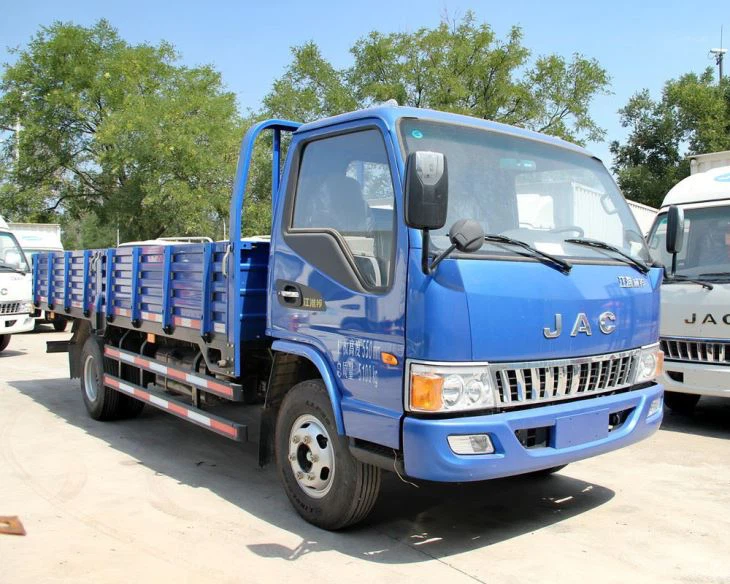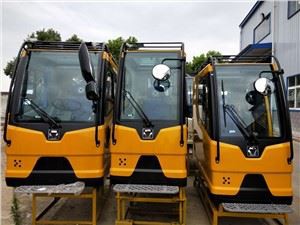Understanding Bank Trucks: Types, Security Features, and Best Practices

Introduction
Bank trucks, often known as armored vehicles, play a crucial role in the financial sector by transporting cash, sensitive documents, and high-value items safely. Given the increasing concerns around security, understanding the variations, functions, and best practices for bank trucks is crucial for businesses and individuals alike. This article delves into the types of bank trucks, their security features, operational functions, and guidelines for safe transportation, while also addressing common questions about their use.
What Are Bank Trucks?
Bank trucks are specialized vehicles designed to transport valuables securely. Equipped with reinforced bodies, advanced locking systems, and other safety features, these vehicles minimize the risk of theft or damage while in transit. The primary purpose of these trucks is to ensure the safe delivery of cash and other assets between banks, ATMs, and businesses.
History of Bank Trucks
The evolution of bank trucks can be traced back to the increasing need for secure transport of currency. Originally, cash was transported in standard vehicles, but the risks involved prompted the development of specially designed armored trucks. Today, these vehicles are equipped with state-of-the-art technology to enhance their security and operational efficiency.
Types of Bank Trucks
1. Armored Transport Vehicles
Armored transport vehicles are perhaps the most recognized type of bank truck. They are designed with reinforced armor plating that provides protection against firearms and explosives. These vehicles often come with bullet-resistant glass and secure locking mechanisms.

2. Cash-in-Transit (CIT) Vehicles
Cash-in-Transit vehicles are a subtype of armored trucks specifically used for the transportation of cash. They are typically operated by private security firms and are equipped with tracking systems to ensure their safety during transit.
3. Mobile Banking Units
Mobile banking units are bank trucks designed to bring banking services directly to customers. Equipped with ATMs and other banking technology, these vehicles enhance accessibility, particularly in underserved areas.
4. Security Vehicles for High-Value Items
Some bank trucks are designed to transport high-value items, such as jewelry or important documents. These vehicles often have sophisticated locking and tracking systems to ensure maximum security during transit.
Why Are Bank Trucks Important?
Bank trucks are essential for several reasons, including:
- Security: They minimize the risk of theft and loss during the transportation of valuable assets.
- Efficiency: Companies can manage their cash flow more effectively by using bank trucks for regular deposits and withdrawals.
- Trust: The use of bank trucks enhances customer trust in the financial system, knowing that their money is secure during transportation.

Security Features of Bank Trucks
1. Armor Plating
Armor plating is one of the most critical features of bank trucks. The level of protection often complies with military standards, making them resistant to various forms of attack.
2. Bullet-Resistant Glass
Bank trucks are equipped with bullet-resistant glass, which is significantly thicker and stronger than standard glass, providing an additional layer of protection for the occupants and the cash being transported.
3. Advanced Locking Mechanisms
These vehicles often utilize high-security locking mechanisms that require multiple keys or codes to unlock, making unauthorized access nearly impossible.
4. GPS Tracking
Most bank trucks are fitted with GPS tracking devices. This allows for real-time monitoring of their location, making it easier to track in case of theft or emergencies.
5. Surveillance Systems
Equipping bank trucks with internal and external cameras enhances security by recording activities during transit, providing evidence in case of incidents.
Operational Procedures for Bank Trucks
1. Pre-Trip Inspections
Before every trip, thorough inspections should be conducted to ensure all security features are operational. This includes checking the armor, locks, and electronics.
2. Route Planning

Effective route planning is crucial for minimizing risks. Routes should avoid high-crime areas and should be varied regularly to deter would-be thieves.
3. Coordination with Law Enforcement
Maintaining a relationship with local law enforcement can provide additional support during transport, especially when large cash amounts are involved.
4. Use of Trained Personnel
Only trained and vetted personnel should operate bank trucks. Regular training sessions should be held to update employees on security protocols and emergency procedures.
Guidelines for Safe Transportation
1. Maintain Low Profile
Bank trucks should avoid displaying any logos or identifying marks that would reveal their purpose, as this can deter potential threats.
2. Secure Loading and Unloading
Safely loading and unloading cash is crucial. Personnel should always be aware of their surroundings during these processes.
3. Emergency Protocols
Establish clear emergency protocols that all personnel must follow if they encounter a threatening situation. This can include procedures for notifying law enforcement or securing the cash being transported.
4. Regularly Update Security Measures
As threats evolve, so should security measures. Regular assessments and upgrades to technology and procedures will help keep bank trucks secure.
Cost Considerations
1. Purchase vs. Leasing
Organizations can either purchase or lease bank trucks. Each option has its advantages. While purchasing offers full ownership, leasing can reduce upfront costs and provide flexibility.
2. Maintenance Costs
Owning a bank truck comes with maintenance costs. Regular service checks are essential to keep security features and the vehicle in optimal condition.
3. Training Costs
Hiring and training personnel to operate bank trucks incurs additional costs. However, this investment is crucial for ensuring the safety of assets during transit.
Future of Bank Trucks
The future of bank trucks looks promising with advancements in technology. The integration of AI for monitoring, improvements in armor technology, and even the use of drones for surveillance and transport are on the horizon. These innovations will likely improve efficiency and security, making bank trucks an even more indispensable part of the financial sector.
Frequently Asked Questions (FAQ)
1. How secure are bank trucks?
Bank trucks are designed with multiple security features, including armor plating, bullet-resistant glass, and advanced locking systems to ensure maximum security during transit.
2. What types of valuables can bank trucks transport?
Bank trucks are used to transport cash, sensitive documents, and high-value items like jewelry and important contracts, among other valuables.
3. Are all bank trucks the same?
No, bank trucks vary in design and functionality. Some are specialized for cash-in-transit, while others serve different purposes, such as mobile banking or transporting high-value items.
4. Can I hire a bank truck for personal use?
While bank trucks are primarily used for business purposes, some private security companies may offer services for personal transportation of valuables on a case-by-case basis.
5. What should I do if a bank truck is involved in a robbery?
In the event of a robbery, it is important to immediately contact local law enforcement and provide them with as much information as possible about the incident.
6. How often do bank trucks undergo maintenance?
Bank trucks should undergo regular maintenance checks, often scheduled monthly, to ensure all security features are working and to perform any necessary repairs.
